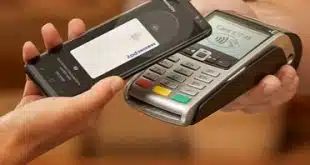Sixty-one percent of respondents to a recent ATM Industry Association survey said that 76% to 100% of the ATMs they operate will be ready for the Europay-MasterCard-Visa (EMV) chip card liability shift that takes effect in October 2016, the trade group of ATM independent sales organizations and retail ATM operators reported Monday.
That finding comes from a poll the ATMIA conducted late last year of both members and non-members. It stands in sharp contrast to deployers’ readiness for an EMV liability shift that took place in April 2013, when only 12% of ATM operators had machines deployed that were capable of accepting EMV cards. That shift affected counterfeit transactions involving MasterCard Inc.’s Maestro brand from foreign cardholders using Maestro cards at U.S. ATMs.
“I was pleasantly surprised, I really thought there had been some solid progress made [but] the level of that progress was surprising,” David Tente, executive director for the U.S. and Latin America at the Sioux Falls, S.D.-based ATMIA, tells Digital Transactions News.
Of the 118 responses the ATMIA received, 59% came from independent ATM deployers and the rest from banks and credit unions. Two-thirds of the financial-institution respondents operate less than 100 ATMs, but a few had fleets of more than 5,000 machines. Some 44% of the ATM ISOs operate 101 to 500 machines.
In a related finding, 21% of respondents said 76% to 100% of their machines currently are EMV-capable. Another 7% of respondents said 51% to 75% of their ATMs can support EMV transactions. Meanwhile, some 20% of respondents said none of their machines were ready while 33% said only 1% to 10% of them were.
MasterCard has set an October 2016 deadline that will affect many more ATM transactions than the Maestro liability shift. In 22 months, U.S. ATM acquirers must be able to process transactions from EMV chip cards issued by U.S. banks and credit unions. If they can’t, the deployers will bear financial responsibility for any resulting counterfeit card fraud. In October 2017, Visa Inc. will impose a similar ATM liability shift in the U.S.
Experts say the cardholder data on EMV chip cards are much less vulnerable to being skimmed, or copied, than are the data on conventional magnetic-stripe cards. MasterCard’s ATM liability shift follows by one year the major card networks’ EMV liability shift for U.S. merchant acquirers and card issuers that affects point-of-sale card transactions.
Asked if anything unrelated to EMV was delaying their EMV planning, some 34% of respondents mentioned budgetary constraints. While the vast majority of ATM operators have begun preparing for the liability shift, what Tente calls a “core group” of about 20% of respondents have yet to do anything. Those tasks include performing hardware and software audits of ATM fleets to determine readiness, staff training, consulting with vendors, and purchasing upgrade components or new EMV-capable machines.
“One of the independents was very honest about it—they were waiting until the last minute, the very last minute,” says Tente.
Respondents said they expect to upgrade 64% of their existing fleets and replace 13% of their machines. And they indicated that 15% of their fleets would be used as is—not upgraded, replaced or retired.
Some 80% of operators expect to have at least 76% of their machines EMV-capable by the end of 2017, and 89% of respondents expect that level of capability some time after 2017. The fact that some machines will not be upgraded or replaced in order to accept chip cards “is not completely unexpected,” the ATMIA said in its survey report, in part because of what the organization calls “continued uncertainty.”
Tente says a number of respondents expressed frustrations about the dispute-resolution process involving chip cards, an issue the bank card networks should address, he adds. “It’s a little bit of everything—paperwork, things don’t seem to be well-defined, adjudication,” he says. “Things seem to be kind of fuzzy right now.”



